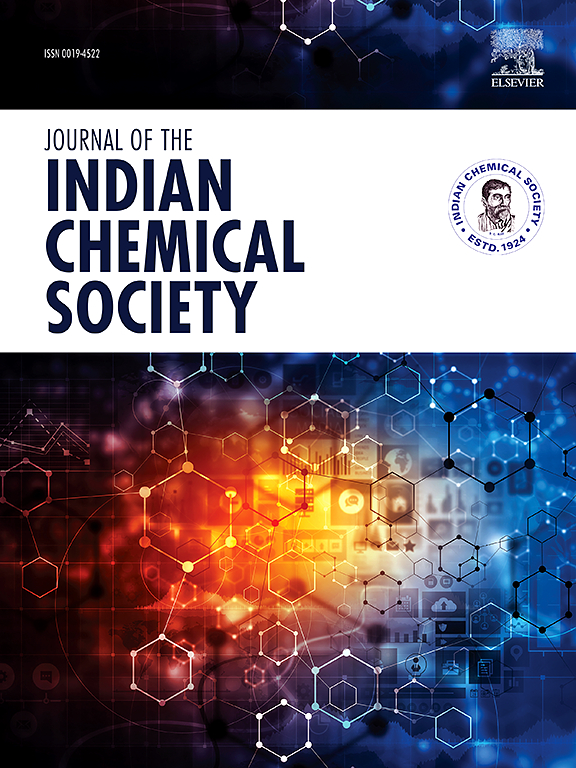A renewable strategy for producing levulinic acid from wheat straw as sustainable lignocellulosic biomass
IF 3.2
4区 化学
Q2 CHEMISTRY, MULTIDISCIPLINARY
引用次数: 0
Abstract
Levulinic acid (LA) is one of the top 12 value-added versatile chemicals and basically used to synthesize diverse range of products such as chemicals, fuels, and polymers. Developing sustainable routes for the production of levulinic acid using lignocellulosic biomass is an important research area. The current study demonstrates the direct usage of monosaccharides that are obtained following ultrasound assisted alkali pretreatment of wheat straw for the synthesis of levulinic acid also elucidating the effect of various operating factors of the hydrothermal conversion process on LA yield. The range of operating parameters investigated in the study include time (0–120min), temperature (140–180 °C), solid loading (4–10 %), agitation speed (200–450 RPM), acid concentration (3–8 %), and type of acids (HCl, H3PO4, H2SO4). The optimal parameters established in the study included temperature of 170 °C, 5 % sugar loading, and 4 % H2SO4 concentration that resulted in the highest levulinic acid yield (63.5 %) during 120 min, with nearly complete sugar conversion. The current study clearly revealed the sustainable conversion of wheat straw into levulinic acid with a demonstration of the best operating conditions during the hydrothermal conversion process for maximum LA formation.

从作为可持续木质纤维素生物质的小麦秸秆中生产乙酰丙酸的可再生战略
本文章由计算机程序翻译,如有差异,请以英文原文为准。
求助全文
约1分钟内获得全文
求助全文
来源期刊
CiteScore
3.50
自引率
7.70%
发文量
492
审稿时长
3-8 weeks
期刊介绍:
The Journal of the Indian Chemical Society publishes original, fundamental, theorical, experimental research work of highest quality in all areas of chemistry, biochemistry, medicinal chemistry, electrochemistry, agrochemistry, chemical engineering and technology, food chemistry, environmental chemistry, etc.

 求助内容:
求助内容: 应助结果提醒方式:
应助结果提醒方式:


